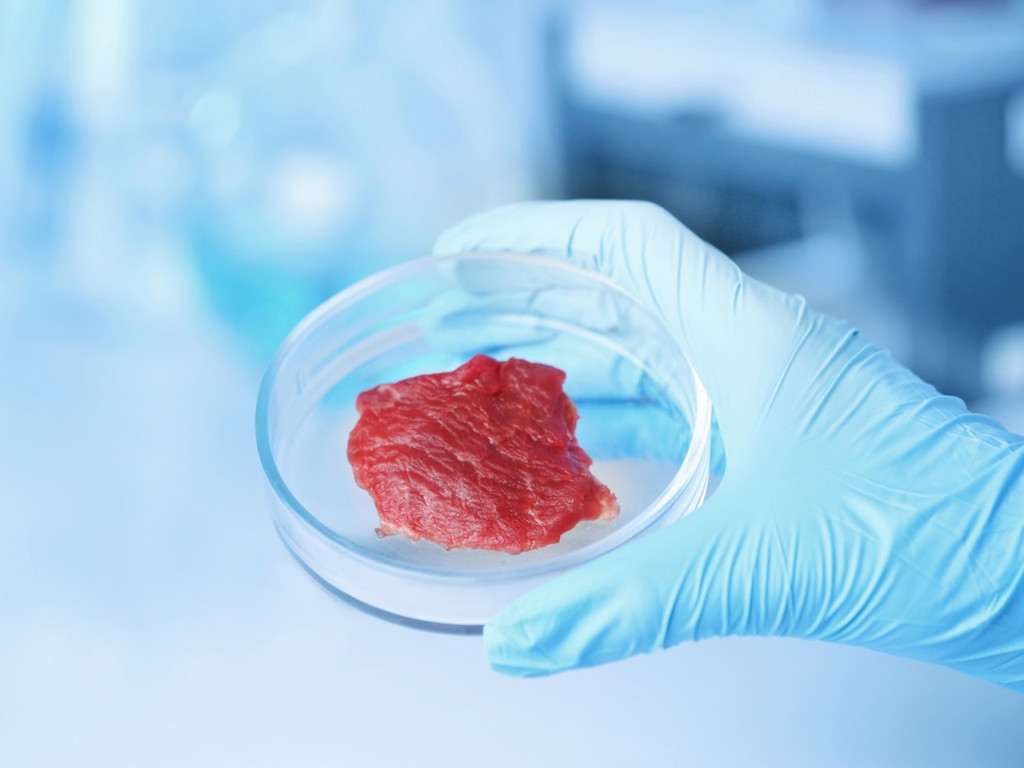4 Mins Read
A new report conducted by independent think tank RethinkX concludes that the beef and dairy industries are in a “death spiral” and will collapse by 2030, predicting that the bold disruption will be driven by new food technologies, including cell-based meat and plant-based analogs, that are rapidly innovating to replace the currently carbon and resource-intensive traditional livestock agriculture. Given that our global food system is wreaking havoc on our planet, fuelling biodiversity loss, the climate crisis and widespread health epidemics, the demise of the beef and dairy industry may not be a bad thing at all.
RethinkX‘s 76-page report titled The Second Domestication of Plants and Animals, the Disruption of the Cow, and the Collapse of Industrial Livestock Farming outlines the way that new technologies will quickly overtake the conventional animal farming industry. The core prediction in the assessment was that a “Food-as-Software” system would emerge by 2030, one that is 100 times more land efficient, 10 – 25 times more feedstock efficient and 10 times more water efficient and generates less waste. This will mark the fastest and most comprehensive disruption to our current global food system ever since the first domestication of plants and animals took place around 10,000 years ago, according to the report.
Due to new laboratory technologies like cellular agriculture and precision fermentation that allow us to master micro-organisms, traditional livestock and dairy farming will be rendered “all but bankrupt.” While cellular agriculture involves multiplying stem cells taken from animal tissue, precision fermentation is a process of programming microorganisms of dairy proteins (without the cow).
These technologies, which alternative protein non-profit the Good Foods Institute suggests we call cultivated meat, will be able to replace our currently organised food system that relies on conventional farming methods because over time, animal-free products will become increasingly cheaper and will “approach the cost of sugar”.
According to the report, there will be reduction of at least 50% of the number of cows in the beef and dairy industry by 2030, followed by other animal-derived products such as all meats, eggs, collagen and leather, because of a shift in demand for these products, and this drastic decrease will all but seal the industry’s fate.
“The beef and dairy industries operate on extremely thin margins, with high operating and financial leverage and are propped up by government subsidies. Both are hanging in the balance and just a small drop in demand will send them spiralling towards bankruptcy,” states the report.
The report also made projections beyond 10 years from now. By 2035, the think tank estimates that 60% of land in the United States used for animal agriculture and feed cultivation will be freed up for other uses if these shifts do occur. This is positive news, as international bodies like the United Nation’s IPCC have continually campaigned for the need to overhaul our current food system.
As of right now, much of the earth’s land is being used for animal agriculture, and in the process destroying topsoil at a rate that is 100 times more than it is being formed, causing irreversible damage to our ecosystems. Currently, 72% of the planet’s arable land has already been exploited by humans, and more forests are being set alight to make more room for a vicious cycle of cattle ranching and soy feed cultivation.
Many food technology startups are already developing the infrastructure for lab-grown cellular agriculture and precision programming or fermentation right now. Over in California-based, Memphis Meats is focusing on beef – they debuted a beef meatball to much fanfare. Industry pioneer Mosa Meat– the European startup were the world’s first- are growing steaks and burgers in their labs. In Asia, Hong Kong’s Avant Meats is working on cell-based fish maw and sea cucumber to cater to local gastronomic tastes, Singapore Shiok Meats is developing cultivated shrimp and India’s ClearMeat is tackling cell-based chicken.
These lab-grown products are likely to be well received amongst Asian consumers, who are increasingly health and eco-conscious and ethically aware. According to a study published in Frontiers, consumers in China and India expressed greater interest in and acceptance of plant-based and “clean” lab-cultured meats than their American counterparts.
The RethinX report also arrives at a time when others have made similar predictions about the demise of animal agriculture. Last month, global consultancy AT Kearney published a report estimating that within 20 years, 60% of meat consumption in the future would not be produced by traditional livestock farming measures.
Lead image courtesy of Belchonock / Deposit Photos.




